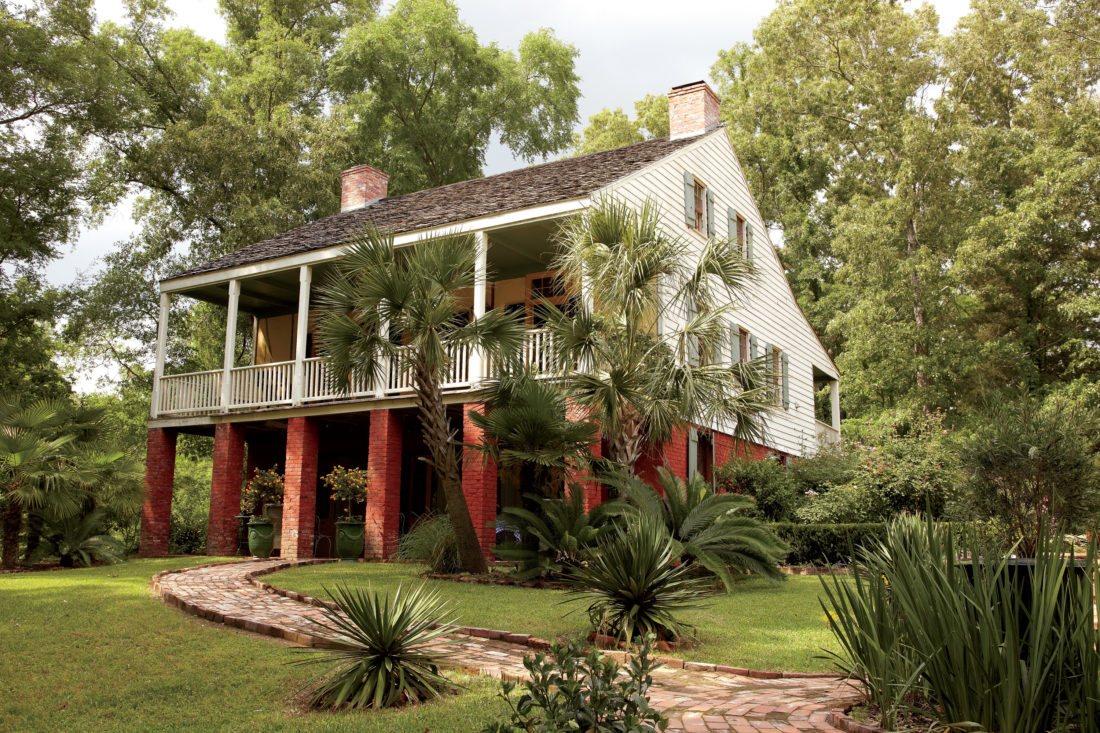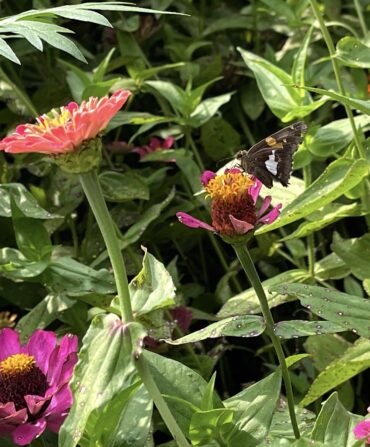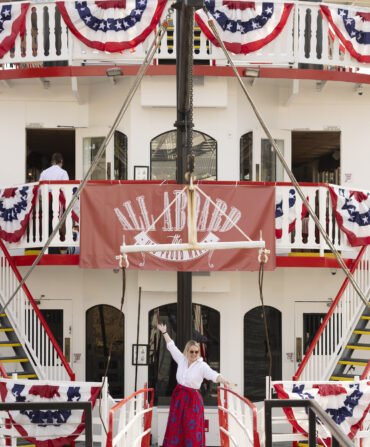The first change Patrick Dunne made to his Creole country house was to remove the dishwasher, a bold statement given how much the New Orleans epicure entertains. He grinds coffee by hand, and though his home has central air-conditioning, he prefers to throw open the sashes and fill the rooms with fresh air. He sleeps under a mosquito net, not for decoration but to keep the bat-sized bayou moths out of his bed. Antique roses, bearing names such as ‘Souvenir de la Malmaison’, ‘Rev d’Or’, and ‘Old Blush’, dominate his parterre garden, and spiky vetiver and citronella sprouting alongside his front gallery drive away mosquitoes the same way they might have done when the home was built two centuries ago. When asked about all the concessions to the past, Dunne—decorator, writer, and longtime proprietor of Lucullus, a French Quarter antiques store specializing in objets culinaires—replies, “I don’t really know how to live in a new house. I just don’t have those skills.”
He’s speaking figuratively, of course. Learning to operate modern technology isn’t the problem. It’s what he’d have to sacrifice on the path of ease and convenience. Dunne’s no purist or preachy Luddite. Forgoing certain creature comforts simply nourishes his roots. “History,” he says, “is both a burden and a glory for Southerners. Our affection for the past and our complex relationship to it survive in our living habits.” Dunne, whose style has been called “ancestral,” proves that his affection is alive and well at Serenity, his house on Bayou Carron.
Dunne came to the country by chance. Flooding from Hurricane Katrina forced him to close his second shop, on Magazine Street, and ditch plans to buy a French country house. Instead, he hedged his bets, opening another Lucullus far from the coast in Breaux Bridge, 130 miles west of New Orleans, in a town where the local phone directory prints nicknames—T-jun, Nook, Red—to differentiate members of the Le Blancs, Dupoys, and other Acadian families. At first, the self-proclaimed urbanite had to overcome his geographical bias. “I used to think that anything on the other side of Lake Pontchartrain was terra incognita,” he says. “Paris was much closer to me than Baton Rouge.” A peek through a window changed his mind.
Serenity, built during the first decades of the 1800s, is a classic French Creole manor house. Modest in scale, it has a broad, gabled roofline that stretches down to shade deep front and rear galleries. Perched above a brick-walled ground floor are the premier étage and a large attic. Their timber-frame walls are infilled with bousillage, a plasterlike mixture of mud, Spanish moss, and animal hair.

Photo: Brie Williams
A farm sink and copper pots for cooking gumbo.
Even more than the adherence to Creole form, what drew Dunne was the spirit of the style. Like most Creole houses, Serenity has no halls. The rooms are en suite, cozying up cheek by jowl, with high ceilings and tall French doors. They’re casual, sociable, and grand all at once. His decor responds in kind. Gilt pier glass and silk-covered Louis XVI canapés share real estate with rustic, open shelving and a soapstone farm sink in the kitchen. Wide-plank cypress floors are unfinished—“polished by shoe leather,” he says.
Dunne’s ideas, like many of Serenity’s furnishings, have been passed down. “I’m lucky enough to have grown up with a father who was a great bon vivant,” he says. “He loved good food, loved old things, was a great collector.” But he wasn’t fussy. “We always had bulldogs. Guests would be horrified, but he thought it was hilarious to see this big old bulldog sitting in a French chair with his chin propped on the arm. I guess I inherited that.
“There’s no sense in hyperventilating over things. People and feelings are always more important, although things are important too. It’s a conundrum. I have a lot of my family’s things out in the country. I will tell you that when I stir my coffee with one of my grandmother’s silver spoons, it does make me happy. When I sit in a chair that my father gave me that came out of our house, it does make me happy. It’s a Southern thing. That attachment threads us through to our roots.”









